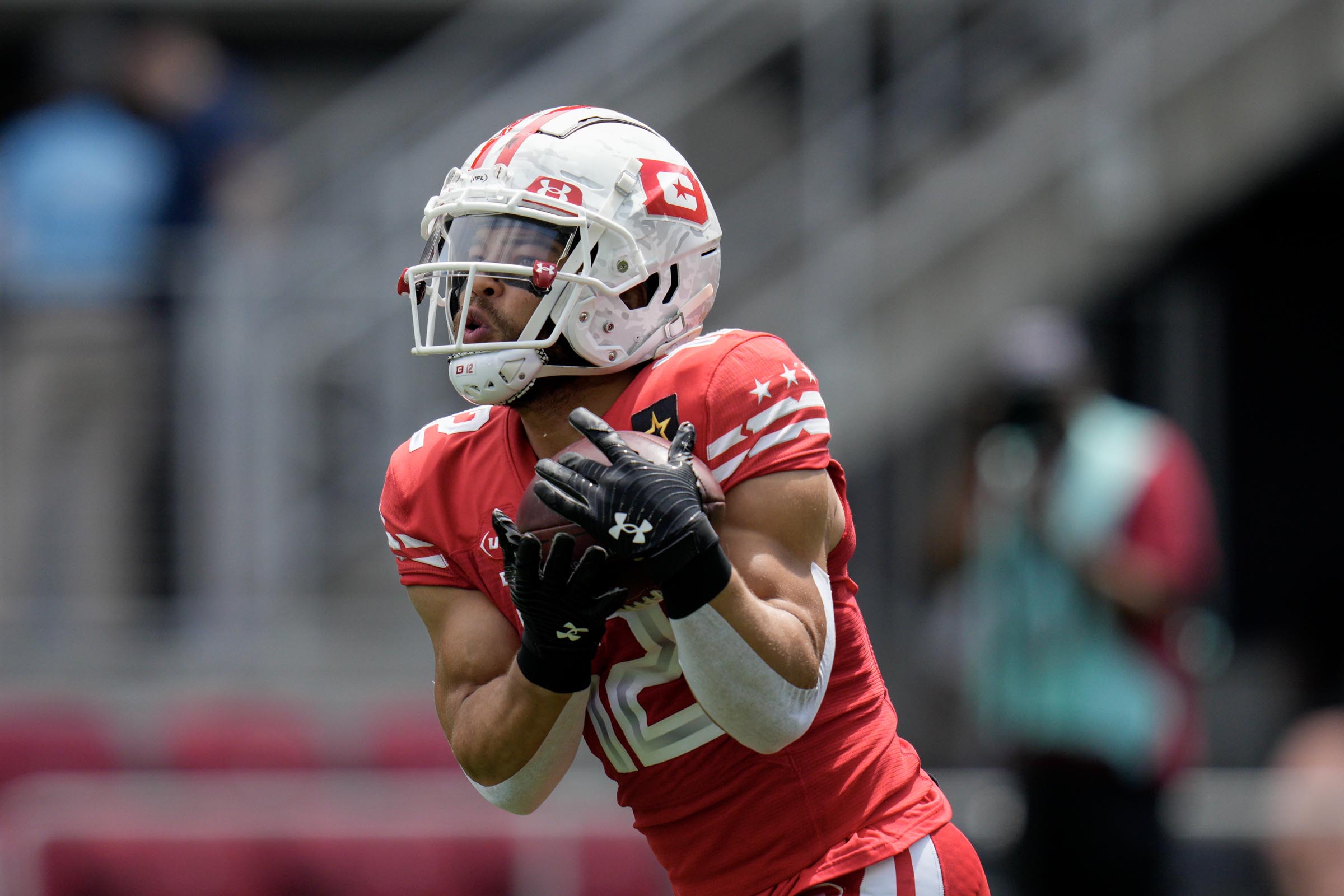
My “Three up, three down” column appears weekly on UFL Board during the season, taking note of positives or things that are happening often (“up”) as well as negatives or rarities (“down”).
Up: Deja vu
It was strange enough that two games in week 10, the San Antonio Brahmas vs. St. Louis Battlehawks and Birmingham Stallions vs. Michigan Panthers, would be replayed the following week in their respective conference championships (both in the same venues played in week 10, by the way). Even stranger, the week 10 match-ups were already the second time both of those games had been played. Birmingham bested Michigan in week two, and St. Louis eked out a week three win over San Antonio. There will be no rubber matches, then, next week, as both Birmingham and St. Louis are 2-0 against their upcoming foes. This also means that in 11 games, these teams play each other three times, or almost 30% of their total games on the season. Such are the perils of having just eight teams and 10 regular season games.
Down: Memphis transactions
You would anticipate that a team at the bottom of the standings would be looking for ways to improve their roster before they could be eliminated from postseason contention. Finishing the season 2-8, Memphis would be one of those teams. Yet, in looking at their transactions, they had the least roster turnover in the league. From the start of the season to the end, the Showboats made just four sets of transactions. On one hand, it’s almost amazing the luck the team had with health that they only placed one player on injured reserve during the season. On the other, a team that was so clearly overmatched did next to nothing during the season to better its stock. It’s a curious decision for sure, but they did end up with the number one pick in the upcoming draft, so maybe they were right after all.
Up: Use of the helmet cam
Fox used the helmet cam on the broadcast last week, and brought it back again with RB Wayne Gallman of the St. Louis Battlehawks in the regular season finale. It gave a unique view of the game to those at home who’ve never played between the lines. I’m not sure why this hadn’t been used more throughout the season, but it was an interesting broadcast wrinkle, and one that I think would be worthwhile for Fox to expand upon during next year’s coverage. Any way that these networks can present the game to fans that is different than what they get with college football or the NFL is a valuable tool to not only attract but to keep an audience.
Down: Game-winning field goals
The story of the early part of the UFL season was just how many games were coming down to the wire, several of them decided on last-second field goals. As the season progressed, kickers got a bit wonky and weren’t as automatic as they had been in the first half of the year. Three of the four week 10 games were one-point affairs, and two of them – the two featuring playoff teams- came down to kicks on the final play. And both were missed. In Birmingham, Jake Bates of the Panthers missed a 53-yard field goal, well within his range, as time expired. After losing last week for the first time in 15 games, lady luck seemed to ride with the Stallions once again. Then, in St. Louis, Ryan Santoso, who had missed his previous four field goal attempts, came on to win the game from 51 yards. He too came up empty.
Up: Big kick returns
Week 10 was highlighted by the biggest, that being the first and only kickoff return for a touchdown in the UFL this year. That distinction went to DC’s Chris Rowland, who put the Defenders up 9-6 over the Renegades in the second quarter with an 84-yard TD. This was nothing new for Rowland, who boasts three of the six longest kick returns on the year. One of the supposed benefits of the more traditional kickoff the UFL opted for this year is that we would see more big plays in that phase of the game, including more touchdowns than we’ve seen with a year-and-a-half of the XFL-style kickoff. That didn’t come to pass this year, though returners have broken some lengthy returns. This could be another factor in deciding whether this kickoff will be retained for 2025.
Down: Play-calling changes
Last year in the XFL, three head coaches, desperate for an offensive spark, changed around their staff during the season and switched the play caller on that side of the ball. Orlando, San Antonio, and Vegas all made that change in-season. This year, despite the major offensive struggles of some teams, we haven’t seen that. The closest we’ve come is what we saw in week 10, where Memphis head coach John DeFilippo, who also called plays on offense all year, gave that up to the team’s offensive coordinator, Doug Martin, for the final game. According to the announcers, it was done in part so that DeFilippo could better evaluate all aspects of the team in the season finale, but also because of Martin’s relationship with the starting QB, Josh Love. Though Memphis won the game, they averaged about 30 yards less per game on offense and they were basically right on their average points per game for the season.












